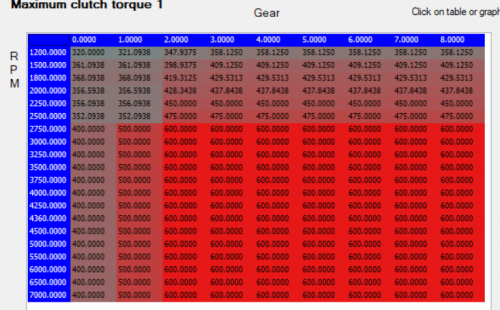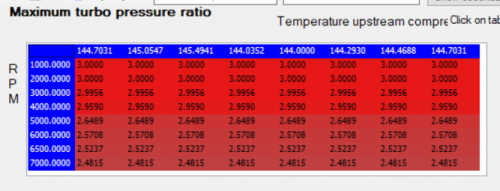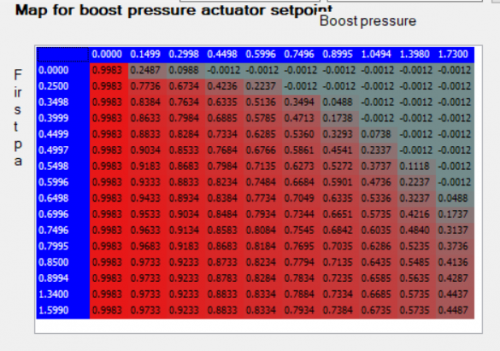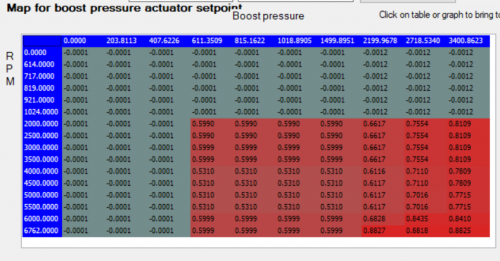Difference between revisions of "Eurodyne Tables"
| Line 14: | Line 14: | ||
'''Note:''' "Full Throttle" can happen even if the accelerator pedal is not pushed completely down. | '''Note:''' "Full Throttle" can happen even if the accelerator pedal is not pushed completely down. | ||
| − | + | ||
=== Full Load Lambda === | === Full Load Lambda === | ||
This table is referenced when the ECU is in a full throttle situation. The X-Axis represents time elapsed in full load in seconds. | This table is referenced when the ECU is in a full throttle situation. The X-Axis represents time elapsed in full load in seconds. | ||
Revision as of 15:21, 24 September 2020
Contents
Calibration tables
Limiters
Maximum Clutch Torque
The Maximum Clutch Torque tables are used to define the maximum available torque based on RPM and gear. The two tables represent MANUAL and DSG transmissions. The ECU will look at the current Driver requested torque percentage (input from the pedal), along with the current RPM to arrive at the target torque value.
The Max torque tables can be used to limit torque delivery in certain gears.
Fueling
Basic Lambda vs Airmass DI
This table is the part throttle fueling map. The ECU will target the entered lambda values during part throttle (not pedal position). At full throttle, the ECU will switch to the "Full Load Lambda" fueling table.
Note: "Full Throttle" can happen even if the accelerator pedal is not pushed completely down.
Full Load Lambda
This table is referenced when the ECU is in a full throttle situation. The X-Axis represents time elapsed in full load in seconds.
Lambda EGT Protection
This table determines the lambda target when the ECU determines EGT (exhaust gas temperature) is too high. You may consider using targets which are not as rich if you have an aftermarket DP.
Minimum Lambda Target
This is the absolute lowest lambda value that the ECU will target. The ECU will ignore any lower values in other fueling tables.
Boost
Maximum Turbo Pressure Ratio
This table is used to define the maximum turbo boost at a given RPM range. The ECU will not attempt to overshoot this boost value. Measurements are relative boost pressure *not* absolute pressure.
Map for boost pressure actuator setpoint
More commonly known as... wastegate duty cycle (though it's the reverse).
Factory file
The factory version of this map can loosely be translated as 'exhaust flow vs. boost'. While it's not necessarily 1:1, exhaust flow will increase along with RPM. The factory curve of the table reflects this.
Boost pressure is along the top, while the exhaust flow is along the side. An easy way to think of it is if you want to maintain the boost value in X, and the exhaust matches the flow on the Y, Z is how far opened the wastegate should be. Or - as exhaust flow increases, the wastegate should open more to account for that. Negative values will keep the wastegate closed, positive values will open the wastegate by that percentage.
This is difficult to tune for because there's no way (today) to log the exhaust flow factory (y values). There's a lot of trial and error involved. You can estimate your exhaust flow factor by finding the boost value and the boost actuator target setpoint, and then locating that cell in table.
Boss/Big turbo version
The Boss file uses a different strategy that's much more straightforward. To maintain X Boost at Y RPM open the gate Z percentage.
Timing
Crackle
Unofficial changelog
Lol



